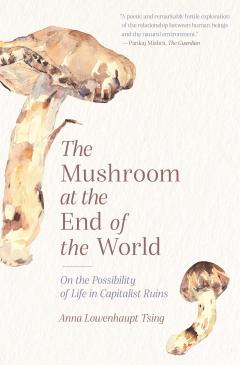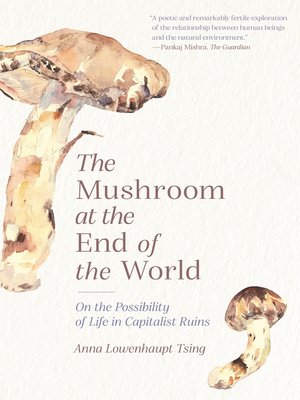
Consistently fascinating, story of the picking and selling of this wild mushroom becomes a wonderful window on contemporary life."-Kirkus, starred review "Tsing weaves an adventurous tale. Bursting with ideas and observations, Tsing's highly original ethnographic study follows this spicy smelling mushroom's global commodity chain. Winner of the 2016 Gregory Bateson Prize, The Society for Cultural Anthropology Winner of the 2016 Victor Turner Prize in Ethnographic Writing, Society for Humanistic Anthropology Finalist for the 2016 Northern California Book Awards in General Nonfiction, Northern California Book Reviewers One of Flavorwire's 10 Best Books by Academic Publishers in 2015 One of Kirkus Reviews Best Nonfiction Books of 2015 in Science One of Kirkus Reviews Best Nonfiction Books of 2015 in Business and Economics One of Times Higher Education's Best Books of 2015 "Unusually rewarding. These companions also lead us into fungal ecologies and forest histories to better understand the promise of cohabitation in a time of massive human destruction., By investigating one of the world's most sought-after fungi, The Mushroom at the End of the World presents an original examination into the relation between capitalist destruction and collaborative survival within multispecies landscapes, the prerequisite for continuing life on earth.ĭie Inhaltsangabe kann sich auf eine andere Ausgabe dieses Titels beziehen. Here, we witness the varied and peculiar worlds of matsutake commerce: the worlds of Japanese gourmets, capitalist traders, Hmong jungle fighters, industrial forests, Yi Chinese goat herders, Finnish nature guides, and more. It is also an edible delicacy in Japan, where it sometimes commands astronomical prices., In all its contradictions, matsutake offers insights into areas far beyond just mushrooms and addresses a crucial question: what manages to live in the ruins we have made? A tale of diversity within our damaged landscapes, The Mushroom at the End of the World follows one of the strangest commodity chains of our times to explore the unexpected corners of capitalism.



Through its ability to nurture trees, matsutake helps forests to grow in daunting places. Matsutake is the most valuable mushroom in the world-and a weed that grows in human-disturbed forests across the northern hemisphere.


 0 kommentar(er)
0 kommentar(er)
